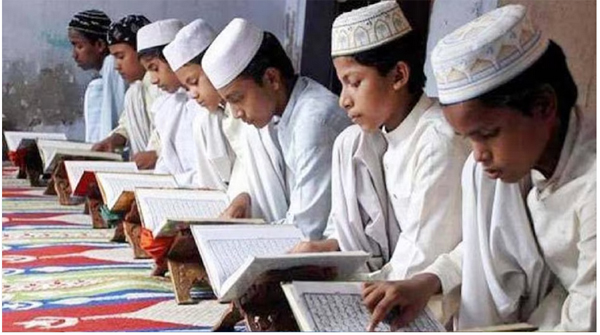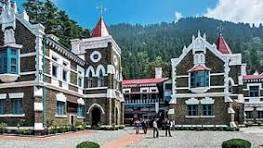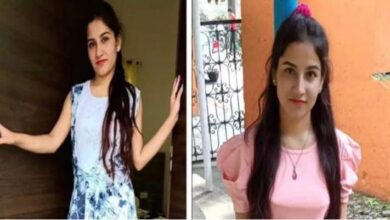Nainital HC notice to Uttarakhand government on Madrasa sealing issue on petition filed by Jamiat Ulama-i-Hind

Nainital HC notice to Uttarakhand government on Madrasa sealing issue on petition filed by Jamiat Ulama-i-Hind
New Delhi, Aug 26
A bench headed by the Nainital High Court Chief Justice Guhanathan Narendar and Justice Subhash Upadhya, issued notice to the Uttarakhand government today, regarding the ongoing alleged unconstitutional actions against madrasas in the state. The bench, after hearing arguments presented by senior Supreme Court advocate Sanjay Hegde on behalf of the petitioner Jamiat Ulama-i-Hind, ordered the government to file a response.
According to Fazlul Rehman Qasmi, Press secretary of Jamiat, during the hearing, Sanjay Hegde informed the court that religious madrasas in the state are being shut down one after another without any prior notice, even though, according to the Madrasa Act, registration of madrasas is not mandatory. He further stated that the Constitution of India also grants minorities the right to establish their own institutions.
The government counsel objected to the petition filed by Jamiat Ulama-i-Hind, arguing that the organization has no legal standing to file the petition since the madrasas against which action has been taken are not present before the court. In response to this objection, the Chief Justice asked Sanjay Hegde why the court should hear the petition when the petitioners are not directly affected. To this, Sanjay Hegde responded that the issue is not merely about the closure of madrasas, but about the arbitrary actions being taken by the government, against which anyone has the right to approach the court. He submitted that their plea is for the court to restrain the government from acting arbitrarily and to compel it to adhere to the rule of law.
He further informed the court that the actions being taken by the state against madrasas are in violation of the constitutional rights granted to minorities under Articles 14, 15, 19, 25, 26, and 30.
Earlier on the petition filed by President of Jamiat Ulama-i-Hind, Maulana Arshad Madani, a three-member bench headed by former Chief Justice V. R. Chandrachud on October 21, 2024, imposed a stay on any action against Islamic madrasas and also stayed all notices that had been issued to madrasas by various state governments, particularly those of Uttar Pradesh and Uttarakhand. The court stated that until further notices are issued by the court, any new notice or order issued by the central or state governments in this regard would also remain under the stay.
Despite this, unfair and discriminatory actions continued to be taken against madrasas in Uttar Pradesh, Tripura, Uttarakhand, and other places.
In response, Jamiat Ulama-i-Hind filed a petition in the Supreme Court. During the hearing, on May 14, 2025, the Court directed Jamiat Ulama-i-Hind to approach the Uttarakhand High Court. Acting on this directive, a petition was filed in the Uttarakhand High Court, which was heard today.
In its petition, Jamiat Ulama-i-Hind stated that the Uttarakhand Madrasa Education Board Act 2016 does not make registration mandatory, nor does it declare unregistered madrasas as illegal. The petition also highlights that the Right to Education (Amendment) Act 2012 clearly exempts madrasas, Vedic pathshalas, and other similar educational institutions from the scope of this law. The petition references several Supreme Court judgments which recognize the unfettered right of minorities to establish and run their own educational institutions, and also provide them protection from state interference. The petition also stated that specifically targeting madrasas in Uttarakhand is unconstitutional, discriminatory, and an act based on malicious intentions.
Interestingly, the Uttarakhand BJP government recently dissolved the Uttarakhand Madarassa Board and brought in a new legislation making it mandatory for all minority educational institutions to register under a new regulatory authority to be formed in the state.
In response to the question of why Jamiat Ulama-i-Hind took this initiative, its president, Maulana Arshad Madani, stated that securing justice for the oppressed and serving humanity without discrimination is the mission of Jamiat Ulama-i-Hind. It was upon the request of the affected individuals that the organization approached the court. He added that many people are unaware, but history records show that it was the Ulama who first initiated the movement to liberate the country from British colonial rule, and these scholars were themselves products of madrasas. In fact, Darul Uloom Deoband was established precisely for the purpose of preparing freedom fighters to resist British rule and achieve independence. Those who are acting against madrasas today are ignorant of their historic role and contribution.
Jamiat Ulama-i-Hind is closely connected to Islamic madrasas; all our senior members have graduated from these very madrasas. In fact, Jamiat Ulama-i-Hind is the voice and the conscience of these madrasas. Sectarian forces are unaware of this history. It was the scholars of these madrasas who, when the entire nation was asleep, breathed new life into the struggle to free the country from colonial rule. Islamic madrasas are our lifeline, and there is a planned conspiracy to cut off this lifeline. Taking action against madrasas by labeling them illegal is tantamount to contempt of the Supreme Court’s decision.
Jamiat Ulama-i-Hind has once again begun its legal struggle against this conspiracy because protecting madrasas is protecting the faith. This campaign is a serious attack on the religious freedom of Muslims. We will continue our legal and democratic struggle for democracy, the supremacy of the Constitution, and the protection of madrasas.






